Maximizing Student Agency: Implementation of Student-Centered Learning Approaches
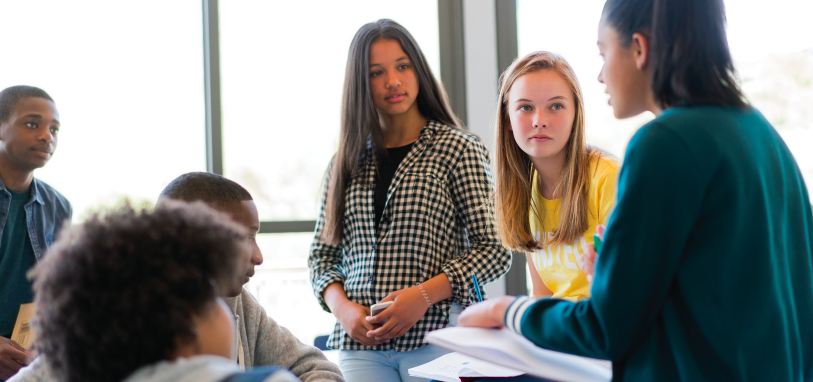
https://youtu.be/r_9hgV6XcK8 American Institutes for Research (AIR) conducted this study as part of the Student-Centered Learning Research Collaborative’s initial cycle of research. The team at AIR worked alongside fellow scholars, educators, and policymakers to investigate the impact of specific student-centered practices and then translate their findings for cross-sector audiences. AIR’s final report, Maximizing Student Agency: Implementation of… Read More ›
Learner-Centered Professional Learning Culture

Learner-Centered Professional Learning Culture maps the transitions and transformations from “School Centered” to “Learner-Centered.” As the professional learning culture deepens. schools transition to practices that ensure every learner is equipped with the knowledge, skills and dispositions to realize their potential. With an intentional focus on educational equity—defined as: Academic achievement Positive socio-cultural and linguistic identity… Read More ›
A National Landscape Scan of Personalized Learning in K-12 Education in the United States
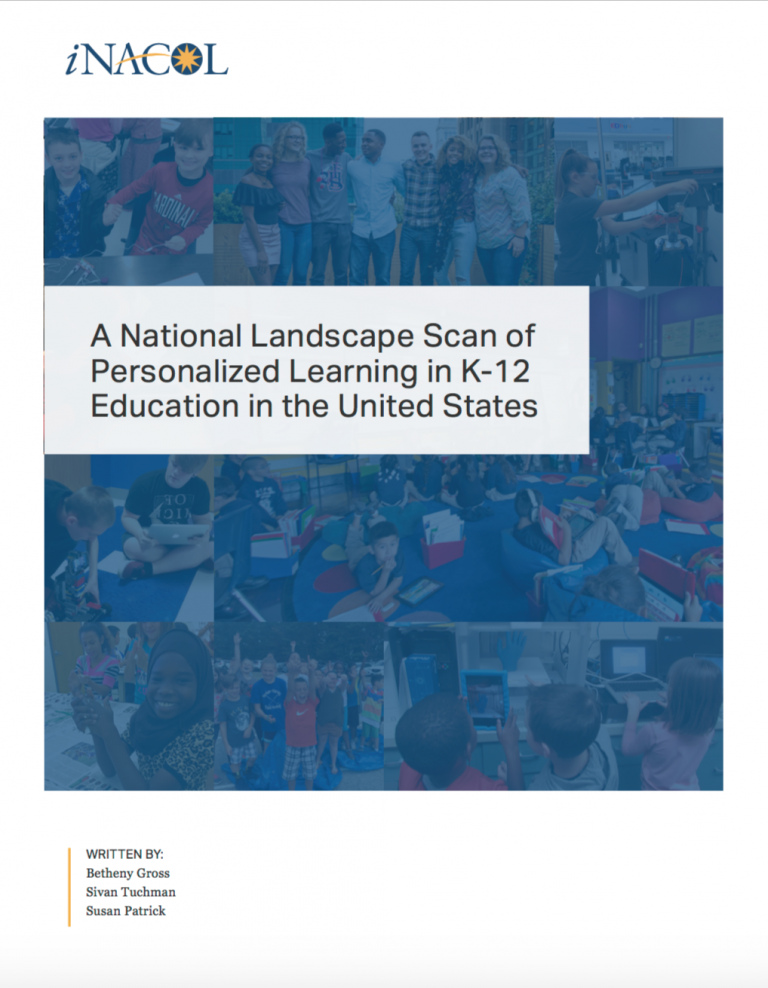
This publication provides findings from a national survey of teachers and students to underscore how, and to what extent, core elements of personalized learning are taking hold in K-12 schools and districts across the United States. iNACOL partnered with the Center on Reinventing Public Education (CRPE), NORC at the University of Chicago, and LEAP Innovations… Read More ›
Coming Soon: New Findings from the Student-Centered Learning Research Collaborative

Leaders in education rarely have the bandwidth to comb through technical studies in order to apply research findings in their classroom. JFF’s Student-Centered Learning Research Collaborative is cutting through the clutter to deliver useful research findings presented in actionable ways. If you’re an educator, administrator, district leader, or state-level official interested in using student-centered learning… Read More ›
Strategies for Stronger Engagement
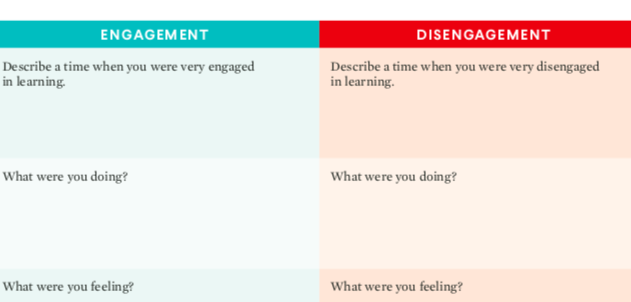
Recent statistics indicate that over half of students are disengaged in school, and teachers spend a lot of their time and energy addressing student disengagement. Is disengagement a challenge in your classroom? How can you create more engaging classrooms where deep learning occurs? How can you develop stronger relationships with all of your students? This… Read More ›
North Dakota School District Ready to Make Bold Changes
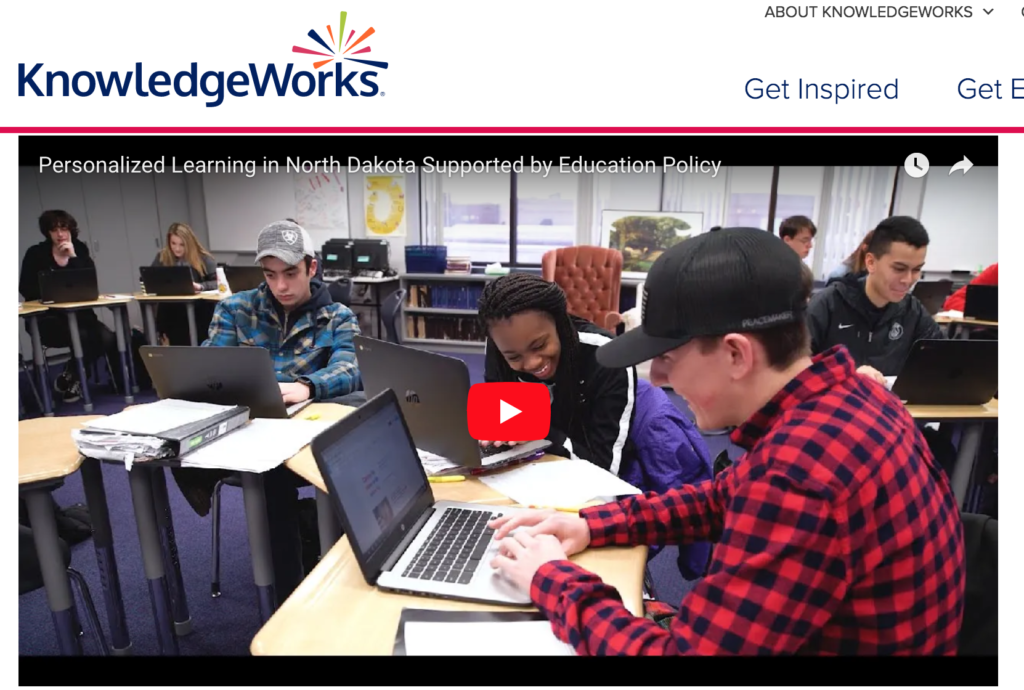
This article discusses the shift to a competency-based model underway in the Northern Cass School District in North Dakota. The district plans to eliminate all grade levels, allowing students to build their own academic path to high school graduation. The changes are supported by state education policy allowing districts to apply for waivers from specific… Read More ›
18 Examples of State Policies that Support Competency-Based Programs
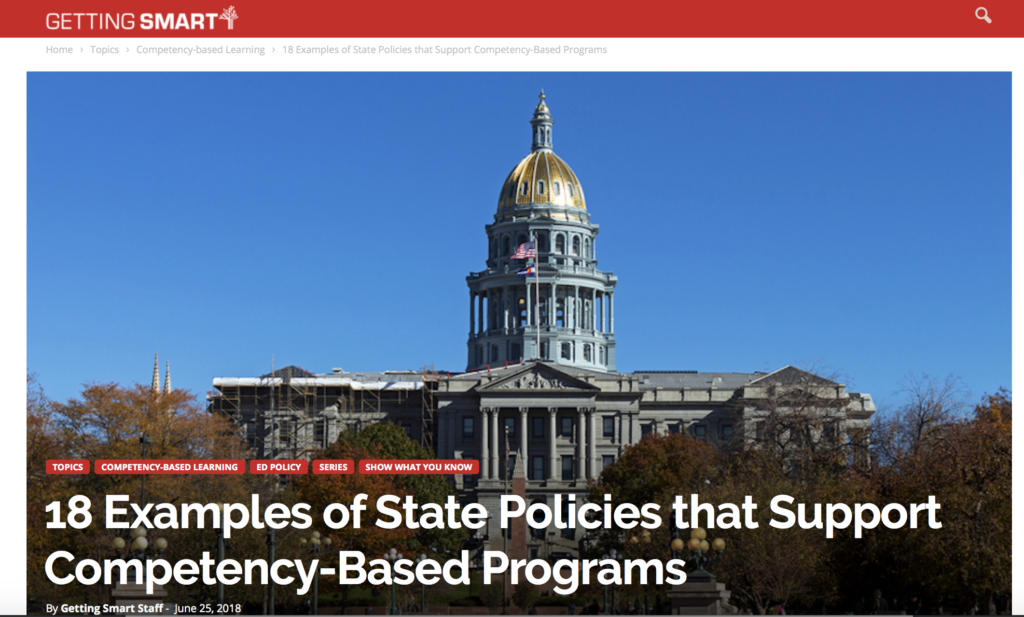
This article provides brief examples of state initiatives that support competency education. It includes initiatives identified as exemplars during the course of research conducted by Getting Smart. The examples are organized by features, including: Flexibility from time-based systems Competency-based diplomas Acceptance of competency-based diplomas and credits by higher education Flexible learning State assessments Innovation pilots… Read More ›
Teacher Inquiry Labs in South Carolina Demonstrate Personalized Learning in Action
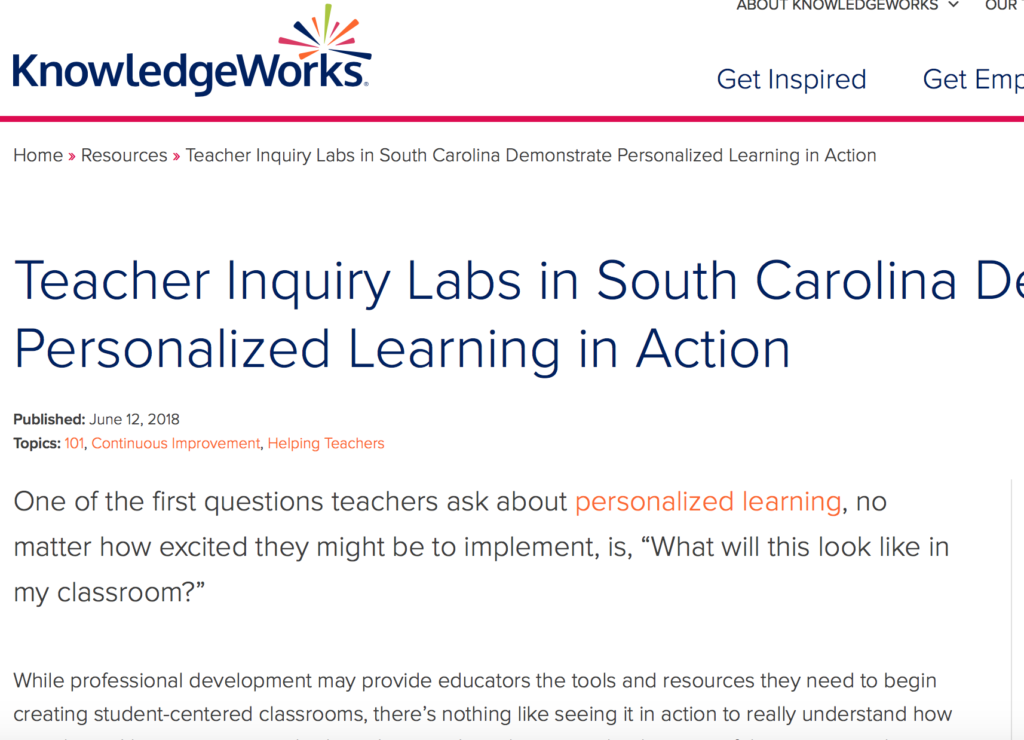
This article discusses a hands on approach to teacher professional development. In South Carolina learning labs are part of the state-led support for personalized learning. They are educator-driven and volunteer-run. A host district highlights one personalized learning practice that they are using across the K-12 continuum and district leaders, educators and instructional coaches from across… Read More ›
Designing for Equity: Leveraging Competency-Based Education to Ensure All Students Succeed
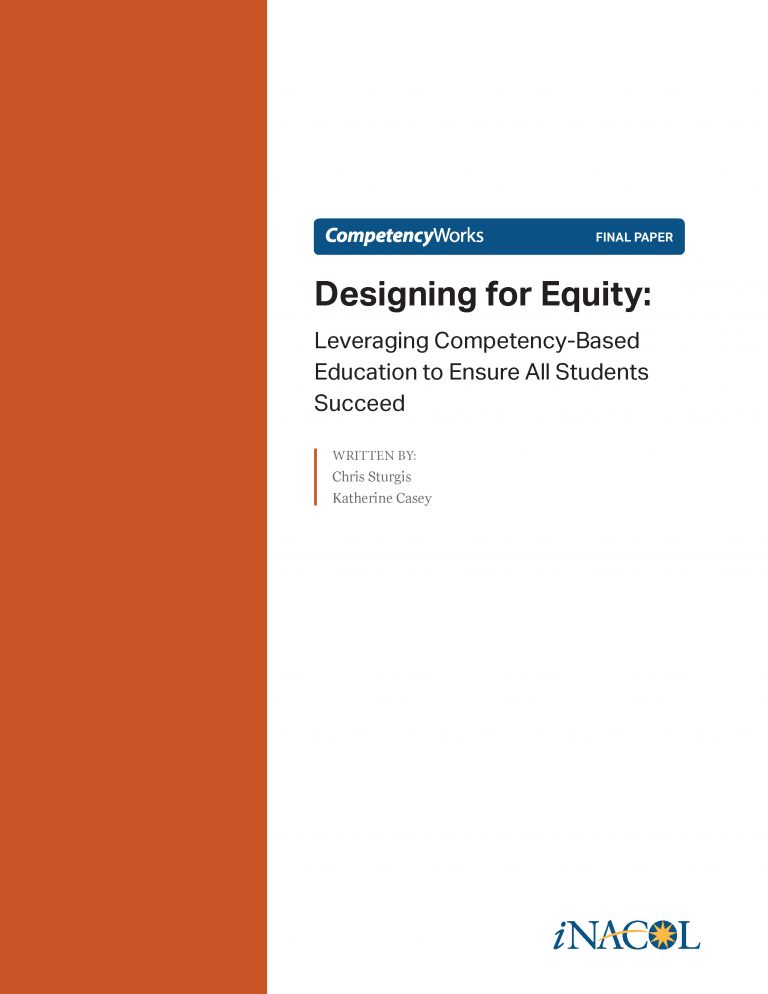
This Competency Works publication offers equity strategies for personalized, competency-based education to ensure a more equitable K-12 education system. Competency-based education systems, designed to ensure all students achieve success, hold promise as a uniquely powerful model for fostering equity, but only if equity is an intentional design feature embedded in the culture, structure and pedagogy.… Read More ›
How Immigration Enforcement Policies Are Impacting Students and Teachers Nationwide

As immigration enforcement intensifies around the country, schools see the impacts firsthand on a variety of stakeholders – students, families, educators, and communities. While many of these impacts have been documented anecdotally through the news media and on social media, researchers at University of California, Los Angeles have recently published a series of papers with detailed… Read More ›
The 5th (C) of 21st Century Skills? Try Computational Thinking (Not Coding)
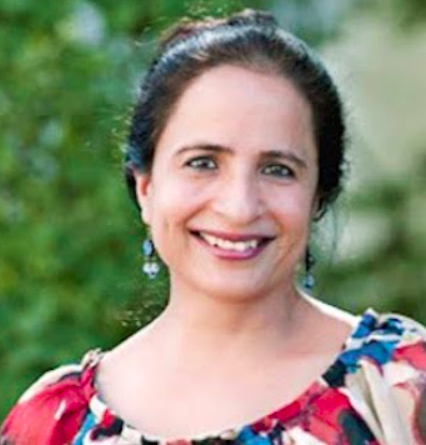
This article was originally posted in EdSurge on February 25, 2018. For better or worse, computing is pervasive, changing how and where people work, collaborate, communicate, shop, eat, travel, learn and quite simply, live. From the arts to sciences and politics, no field has been untouched. The last decade has also seen the rise of disciplines… Read More ›
Satellite Podcast

Sat·el·lite /sadlˌīt/ noun An artificial body placed in orbit around the earth or moon or another planet in order to collect information or for communication. ASTRONOMY. A celestial body orbiting the earth or another planet. Orbiting from on-site locations, Satellite examines innovative educational perspectives. Dr. Frank LaBanca, principal of Westside Middle School Academy and Students at… Read More ›